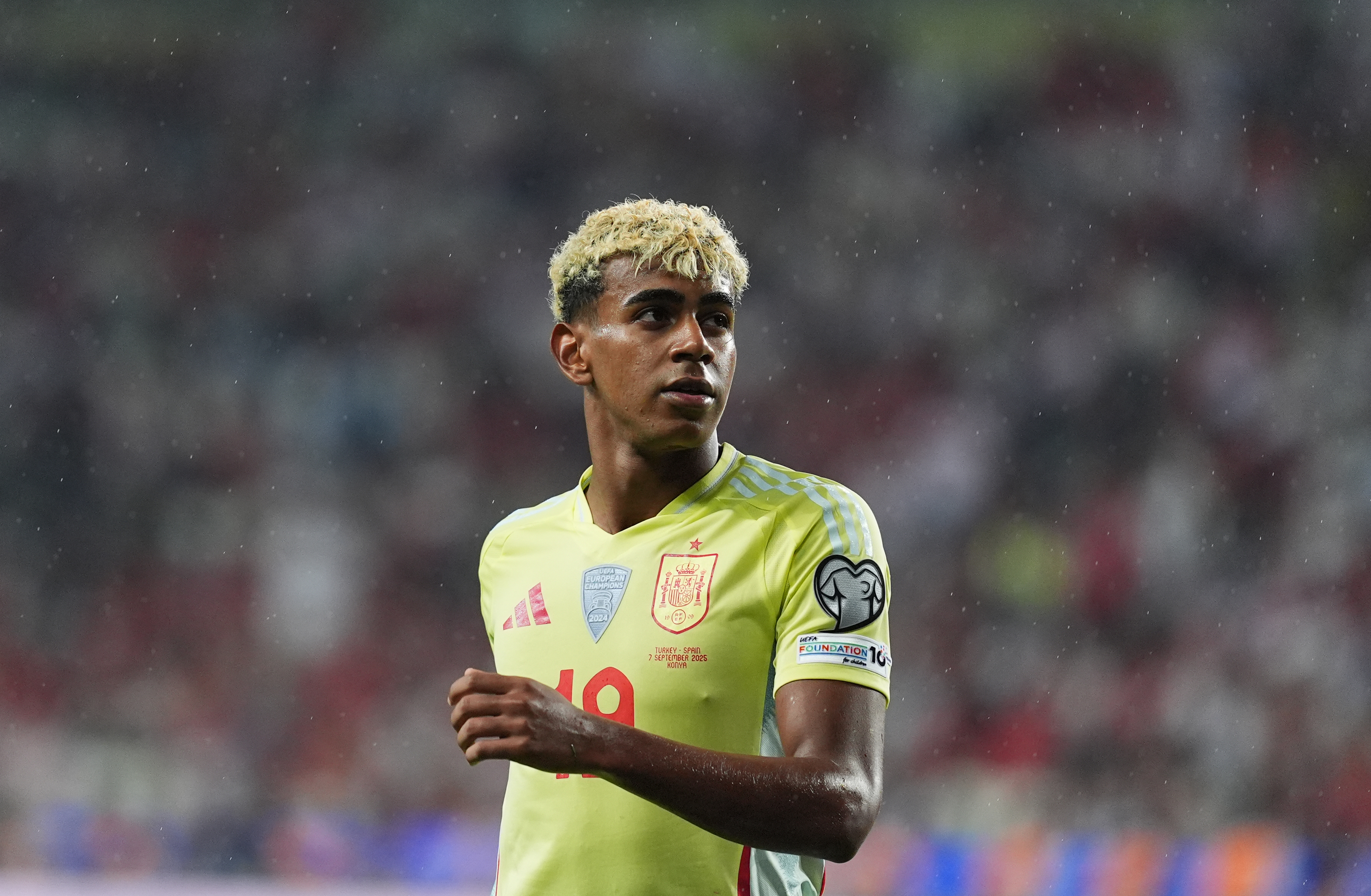EVERY Champions League-winning team – from worst to best
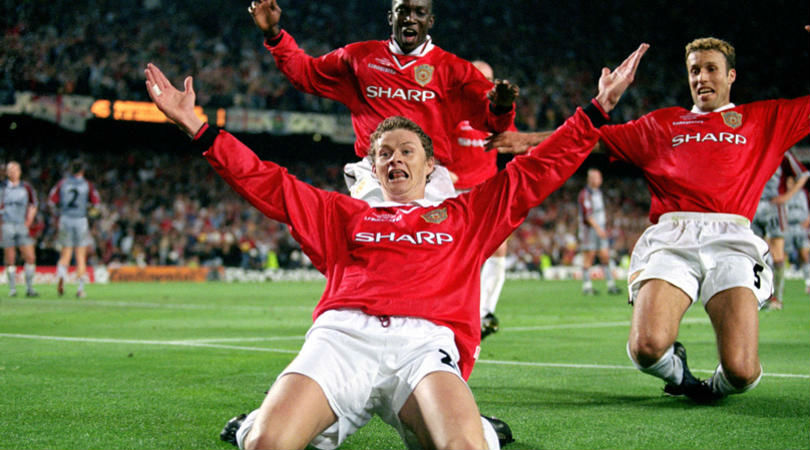
Some champions are better than others...
Firstly, a significant caveat: every team that wins the Champions League has to, by definition, have its special qualities. That being said, some teams are indisputably better than others and in the 27 years since the European Cup became the Champions League, some of the competition's winners have been obvious from the moment a ball was kicked in the First Qualifying Round while in other years you'd have struggled to pick the eventual winners.But who are the best Champions League winners in the quarter century of its existence? From the competition's first winners Olympique de Marseille in the 1992/93 season to the most recent, Jurgen Klopp's 2019 Liverpool side, we rank them all in order from worst to best...
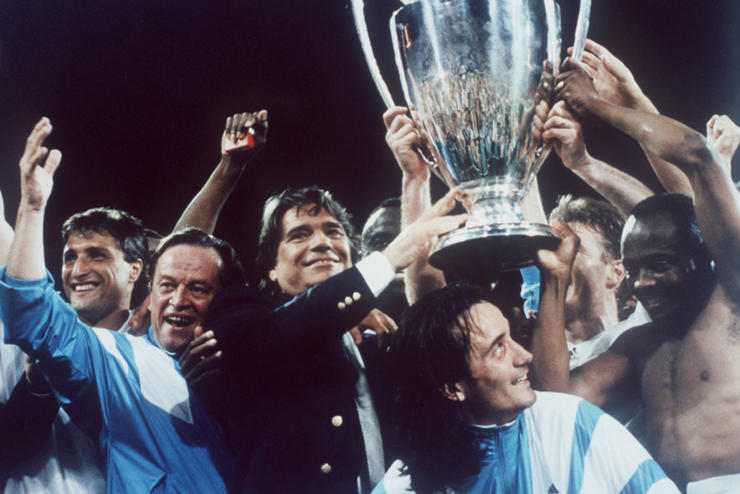
27. Marseille (1993)
Ranked purely on ability, the Marseille of 1993 would feature much higher on this list. With Didier Deschamps anchoring the midfield and the free-scoring Frank Sauzee alongside him, Abedi Pele and Rudi Voller in support of Alen Boksic in attack and a back three of Jocelyn Angloma, Basile Boli and Marcel Desailly, Marseille were truly a force to be reckoned with.
Unfortunately for the players and supporters, the victory is tainted by corruption. Owner Bernard Tapie tried to fix the Ligue 1 game against Valenciennes six days before the Champions League final, in order to give his team an easier ride. After subsequent investigation L’OM were stripped of their domestic title and relegated to Ligue 2; their European title remains officially intact, but indelibly stained.
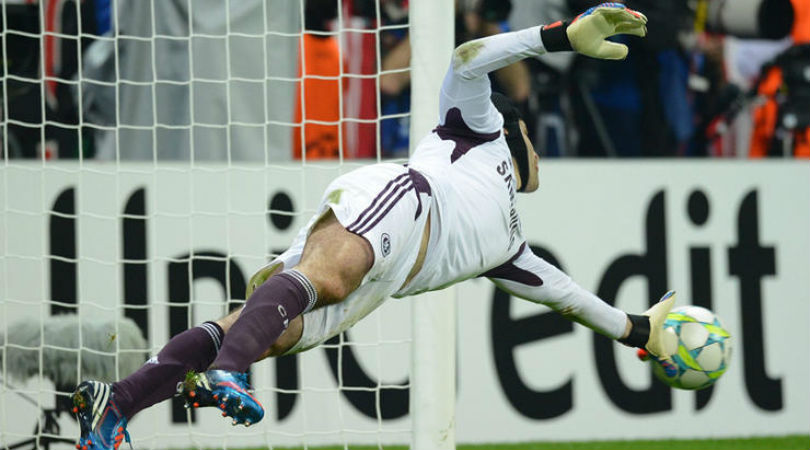
26. Chelsea (2012)
After nine years trying to win the Champions League by hiring the planet's biggest managerial names, Roman Abramovich eventually managed it with a stand-in whose CV had ended "Sacked by West Brom". A popular player at the Bridge, Roberto Di Matteo had been brought in as coach by Andres Villas-Boas – but the Italian became interim manager in March when the Portuguese was binned with the Blues stranded in fifth place and staring at a Champions League exit.
Di Matteo's Chelsea made a second-leg comeback against Napoli, beat Benfica, squeezed past Barcelona in the semis and somehow took Bayern to penalties in their own stadium. Chelsea won the shootout after a game in which Bayern had had 35 goal attempts to the Blues' nine.
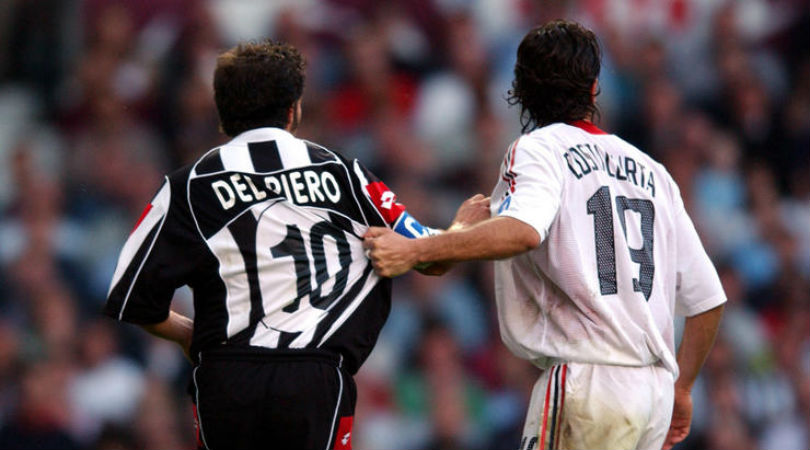
25. Milan (2003)
The 2003 incarnation of Milan were less than the sum of their parts. Their parts included Andrea Pirlo, Clarence Seedorf, Rui Costa, Filippo Inzaghi and Andriy Shevchenko; their sum of goals was four in five Champions League knockout matches.
They were involved in the only scoreless Champions League final to date against a Pavel Nedved-less Juventus at Old Trafford in 2003, winning it on penalties as Juve missed three of their five. Coach Carlo Ancelotti was delighted to win the first title in his coaching career, but more impressive triumphs were to follow - for coach and club.
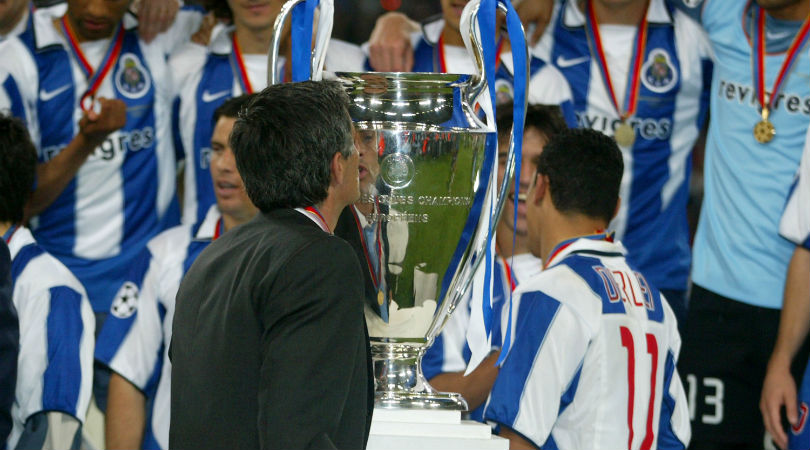
24. Porto (2004)
Jose Mourinho’s Porto rode their luck and ground out results on their way to the Champions League title in 2004. Their tie-winning goal at Old Trafford in the first knockout round came shortly after Paul Scholes had a goal wrongly disallowed, and they beat a vastly superior Deportivo La Coruna 1-0 over 180 minutes of the semi-final.
They were also fortunate to face inexperienced Monaco in the final, winning 3-0 thanks to a brilliant exhibition of counter-attacking football. Deco and Maniche were masterful in midfield, but overall Porto were one of the less attractive and entertaining winners.
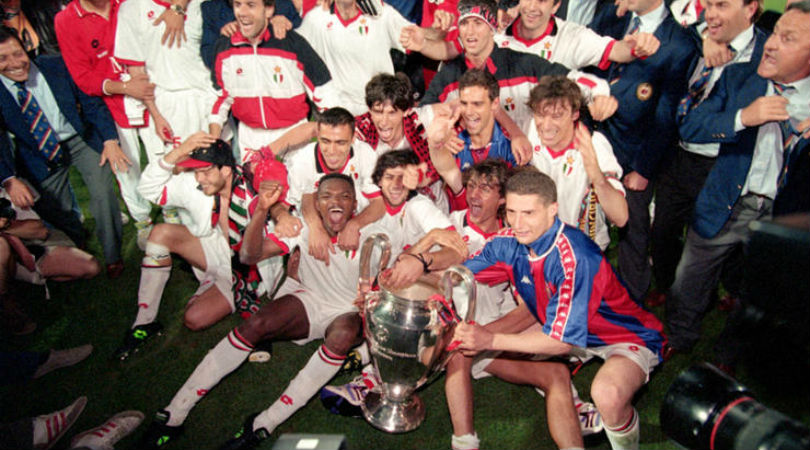
23. Milan (1994)
The 1994 final against Barcelona in Athens was a sensational football match, with the cocksure Johan Cruyff convinced his Dream Team would come out victorious. The Dutch master was in for a rude awakening, with Fabio Capello’s tactical master plan implemented to perfection as the Rossoneri ran out 4-0 winners with goals from Daniele Massaro (2), Dejan Savicevic and Marcel Desailly.
It was a true clash of styles with few neutrals on the side of Milan – Capello’s side had scored just six goals in six group matches and a measly 36 in 34 league matches as they won the Scudetto. As successful as this Milan side were, they weren't exactly the entertainers.

22. Manchester United (2008)
Despite boasting a fluid front line of Wayne Rooney, Cristiano Ronaldo and Carlos Tevez, United based their last Champions League triumph to date on their defence. With Edwin van der Sar between the posts and a centre-back partnership of Rio Ferdinand and Nemanja Vidic, United were able to grind their way to the final despite scoring just eight goals in seven knockout matches.
Having neutralised Barcelona in a dull semi-final, they had a stroke of luck in the final shootout against Chelsea. In the pouring rain of a Moscow summer, John Terry slipped when taking what could have been the matchwinning penalty. Chelsea had had 24 shots to United's 12, but United's aim was truer.
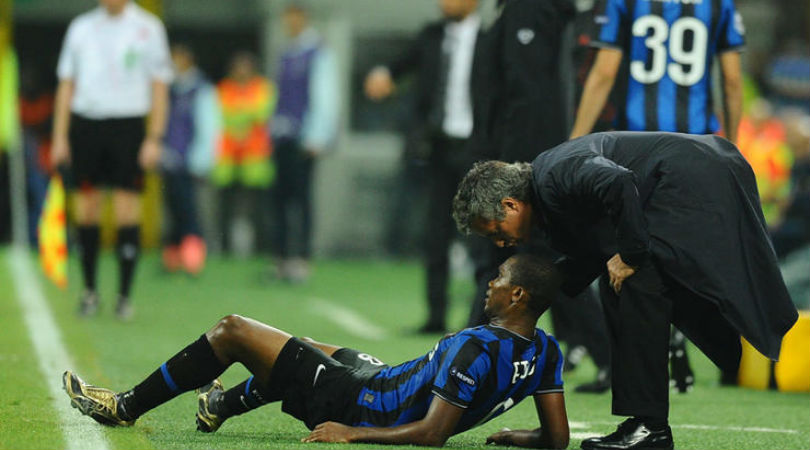
21. Inter (2010)
Jose Mourinho’s second Champions League title and Inter’s first since 1965 was won in typical fashion – grit, tactical discipline and occasionally playing Samuel Eto’o as an auxiliary right-back. Mourinho was happy to concede possession: Bayern Munich enjoyed 68% of it in the Santiago Bernabeu final, yet were still soundly beaten 2-0 thanks to a Diego Milito brace.
Perhaps it shouldn’t matter, especially given the derivation of their name, but Inter didn't have a single Italian in their starting line-up. Subverting the old clichés about carefree South American football, Mourinho's masterclass was achieved with a starting XI featuring four Argentinians and three Brazilians.
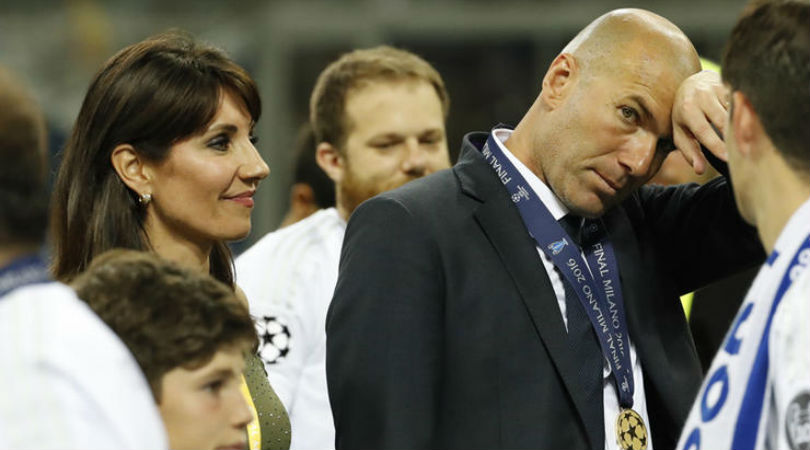
20. Real Madrid (2016)
Real Madrid are the most successful club in the Champions League with seven trophies, yet the first they lifted in their recent hat-trick of triumphs was arguably the least impressive of all. Zinedine Zidane's team were incredibly effective, sweeping aside all before them in the group stage with five wins and a draw, qualifying for the knockout stage comfortably from a pool including Paris Saint-Germain, Shakhtar Donetsk and Malmo. Cristiano Ronaldo was sensational throughout the tournament with 16 goals, but even that tally was inferior to his record two years previously when the Portuguese superstar netted 17. Los Blancos prevailed thanks to their defensive qualities, having kept a clean sheet in five knockout fixtures, including both matches against Roma in the round of 16 and in two games against Manchester City in the semi-finals.
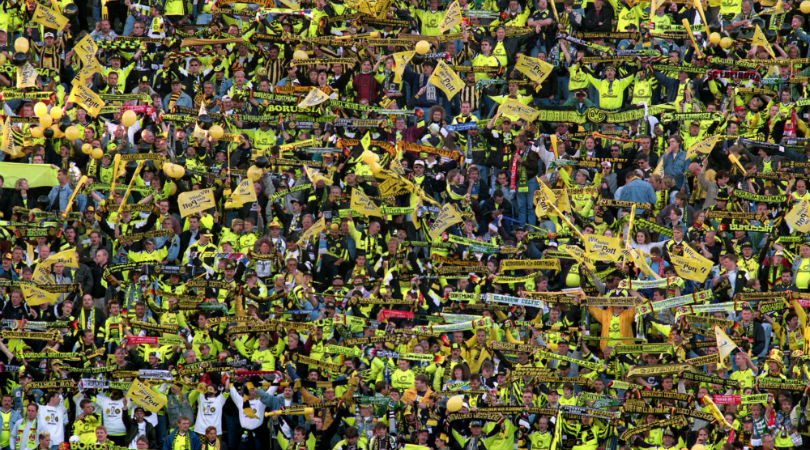
19. Borussia Dortmund (1997)
Dortmund’s victory in the Champions League under Ottmar Hitzfeld came against holders and overwhelming favourites Juventus, with towering performances throughout the side. Paulo Sousa won his second Champions League in a row, having moved from Juve the previous summer; Karl-Heinz Riedle scored a quick-fire couple of goals in the first half and local lad Lars Ricken scored within seconds of coming on as a substitute for Swiss forward Stephane Chapuisat.
Captain Matthias Sammer confirmed his status as one of the finest players on the planet – and maybe the last great sweeper the game has produced. Sadly, the 1996 Ballon d’Or winner was forced to retire shortly after with a knee injury.
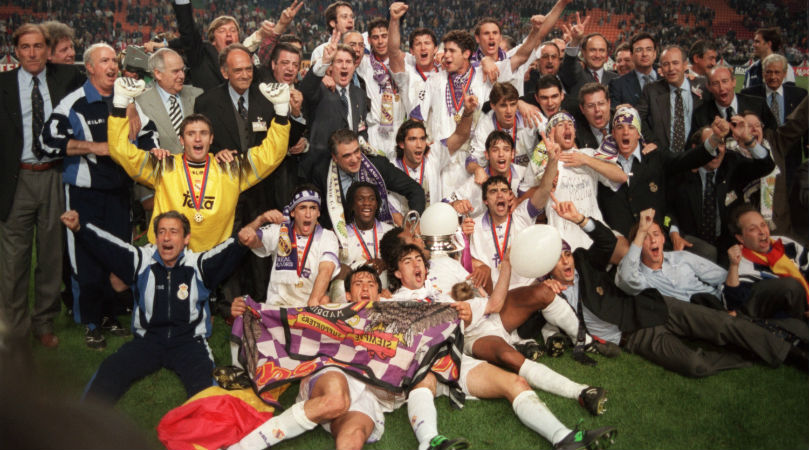
18. Real Madrid (1998)
Real Madrid's statistical domination of Europe's premier club competition has come in two distinct eras: they won their first six titles by 1966 and all the others have come since 1998. It was still something of a surprise when the drought ended against a stronger Juventus side.
Predrag Mijatovic scored the only goal at the new Amsterdam Arena in what was a rather disappointing affair, especially considering Madrid's magnificent team: Fernando Hierro at the back, Clarence Seedorf and Christian Karembeu in midfield and the young Raul up top. Jupp Heynckes, who had prioritised the Champions League over La Liga, was sacked eight days later.
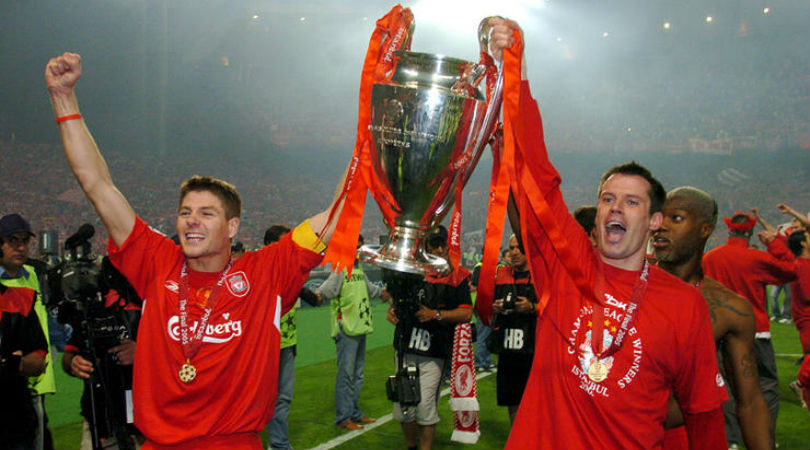
17. Liverpool (2005)
Liverpool finished fifth in the league in Rafa Benitez’s first season in English football, but excelled in the Champions League. Things seemed to be going to script when the much-fancied Milan side were three up at half-time, but in six second-half minutes Liverpool dragged themselves level. Jerzy Dudek then produced one of the greatest saves in history from Andriy Shevchenko's effort, and the Pole also proved to be the penalty shoot-out hero.
Liverpool were a tactically astute side, out-thinking Juventus in the quarter-finals and preventing Mourinho’s Premier League-battering Chelsea side from scoring over 180 minutes in the semi-final, winning the tie courtesy of a controversial Luis Garcia goal. They were not always as exciting as this final implied; how could they be?
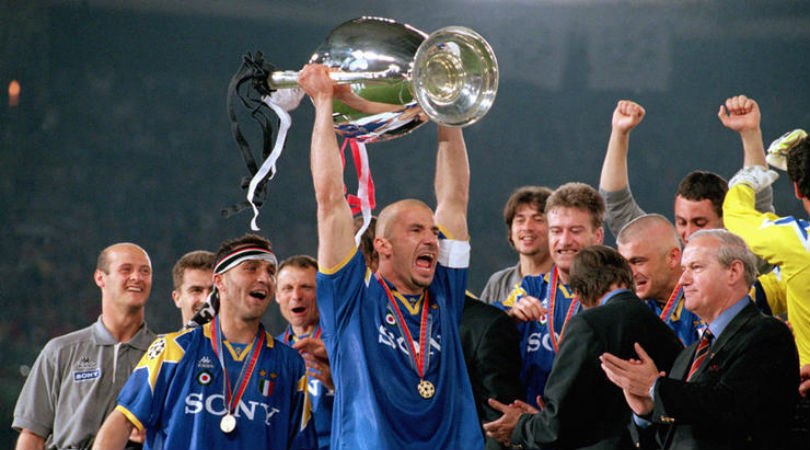
16. Juventus (1996)
Marcello Lippi’s Juventus overtook Fabio Capello’s Milan as Italy’s dominant force in the mid-1990s, with their Champions League win confirming the shift in power from Milan to Turin. En route to the final at Rome’s Stadio Olimpico, Juventus overcame Real Madrid in the quarter-final despite losing the first leg 1-0 at the Santiago Bernabeu. 21-year-old Alessandro del Piero inspired the 2-0 turnaround at the Stadio delle Alpi and his influence throughout the Champions League was vast despite his tender age. This was a typically well-oiled Serie A machine with Didier Deschamps ably helped in midfield by Paulo Sousa and Antonio Conte – all of whom would later become top coaches.
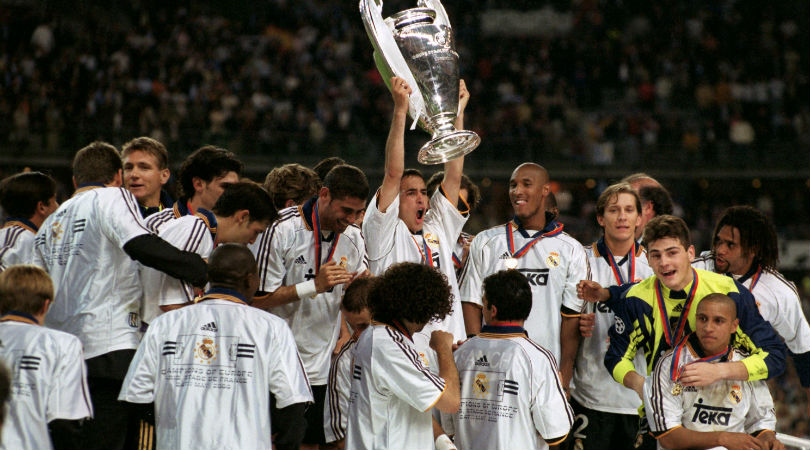
15. Real Madrid (2000)
Real Madrid had chewed up and spat out no fewer than seven managers in four seasons but ultimately found stability with the man they’d looked to twice previously on a temporary basis, Vicente Del Bosque. A decade before winning the World Cup with Spain, the avuncular gaffer moulded several mouth-watering signings into a team with a fluid style that won over the hearts of neutrals.
Ten-goal Raul was unstoppable, but perhaps the most famous moment that season was the outrageous trick Fernando Redondo performed in order to get past Henning Berg before assisting Raul in the superb 3-2 quarter-final win at holders Manchester United. They then threw out the 1999 runners-up Bayern Munich before thrashing Valencia 3-0 in the final at Stade de France.
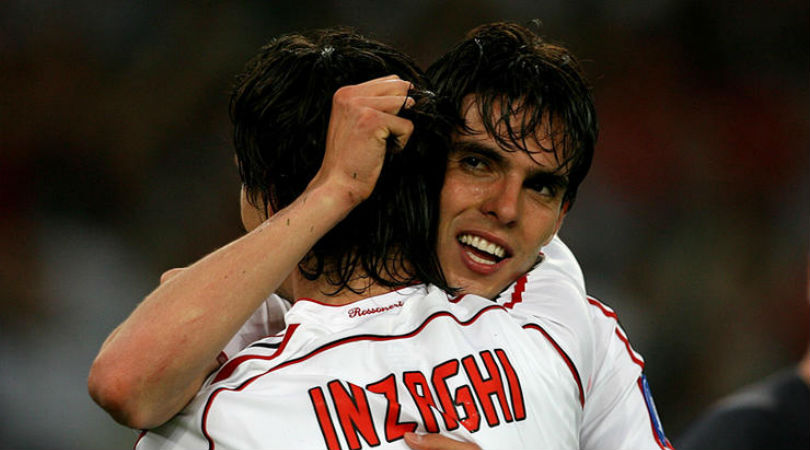
14. Milan (2007)
Some suggested that Milan would struggle to maintain their level when club legend and goal machine Andriy Shevchenko was sold to Chelsea in 2006, but in many ways Carlo Ancelotti’s side improved. Their efficiency in front of goal was particularly noticeable in the knockout stages of the Champions League, with a 2-0 win at the Allianz Arena against Bayern followed up with a 3-0 drubbing of Manchester United at the San Siro in the semi-final. The return leg resulted in a 3-2 defeat at Old Trafford but went down as one of the great Champions League matches. Kaka was imperious throughout the campaign and was more than ably assisted by a wonderful midfield of Andrea Pirlo, Clarence Seedorf and Gennaro Gattuso, with the prolific Pippo Inzaghi scoring the goals – including two in the final against Liverpool.
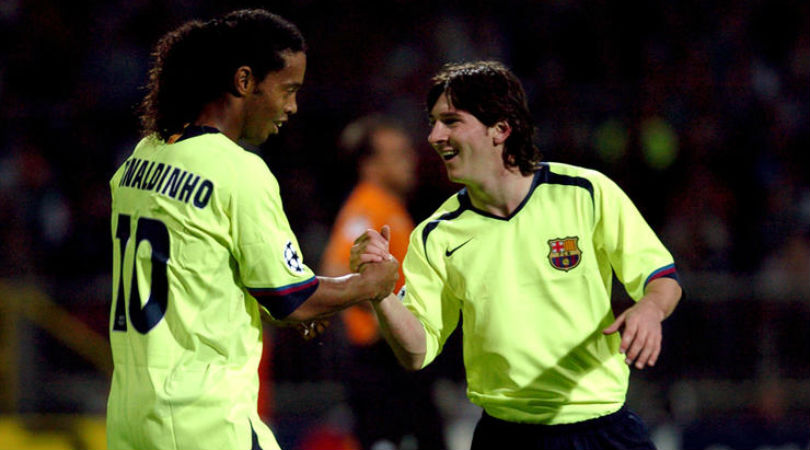
13. Barcelona (2006)
The year before Kaka ruled the Champions League, it was the turn of compatriot Ronaldinho. Dutchman Frank Rijkaard built his side around the mercurial Brazilian, giving Ronaldinho full licence to roam and destroy at will and that platform allowed the former PSG and Gremio man to sparkle. The Ballon d’Or winner led Barcelona to their first Champions League win since 1992, scoring seven goals along the way.
Lionel Messi made his debut in the competition and was infamously fouled by Chelsea's Asier Del Horno in the second round. The Basque's subsequent dismissal turned that tie, as did the red card shown to Jens Lehmann early in the final at Stade de France. Arsenal managed to take the lead with 10 men, only for substitute Henrik Larsson to provide two late assists and give Barça a deserved Champions League triumph. But their best was yet to come.
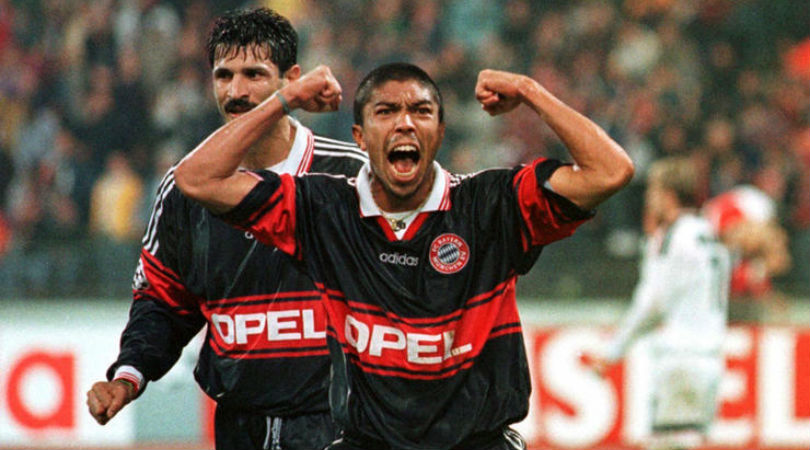
12. Bayern Munich (2001)
Captained by Stefan Effenberg, flanked by flying French wing-backs Bixente Lizarazu and Willy Sagnol and with Oliver Kahn in goal, this was an excellent Bayern side. Traumatised by their late defeat in the 1999 final, coach Ottmar Hitzfeld was desperate to atone and deliver Bayern's first Champions League in 25 years.
The Germans managed to beat both previous winners home and away, overcoming the Red Devils in the quarter-finals and then Real Madrid in the semis; Giovane Elber scored three crucial goals in those matches. They might have required a penalty shoot-out against Valencia in the final, but this was a superb side.
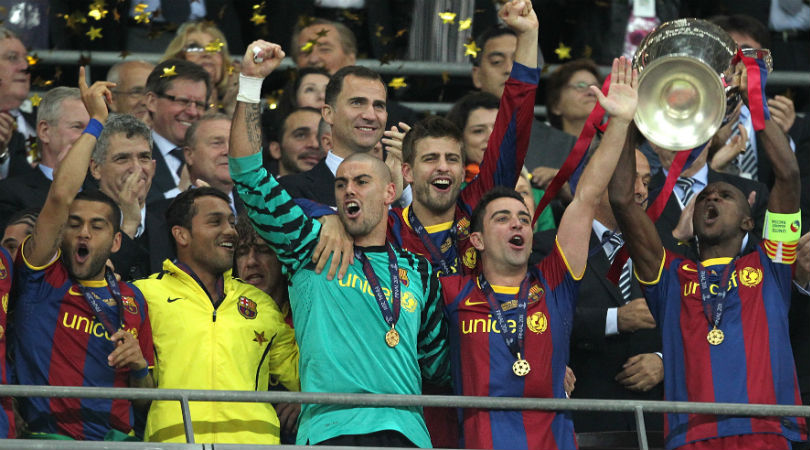
11. Barcelona (2011)
The 2010/11 season was Lionel Messi’s second most productive in the Champions League, with his 12 goals guiding Barcelona to success in Europe’s top competition. He scored more the following season but his goals in the 2010/11 season weighed heavier – especially his two against Real Madrid at the Santiago Bernabeu in the semi-final of the competition, including a strike of sensational quality. Barcelona were in sparkling form more often than not this season, with Xavi and Andres Iniesta calling the shots in midfield, and David Villa enjoying a positive first season up front. Villa found the net, alongside Pedro and Messi, in the final against Manchester United, when Barcelona dominated Alex Ferguson's team in a 3-1 win at Wembley.
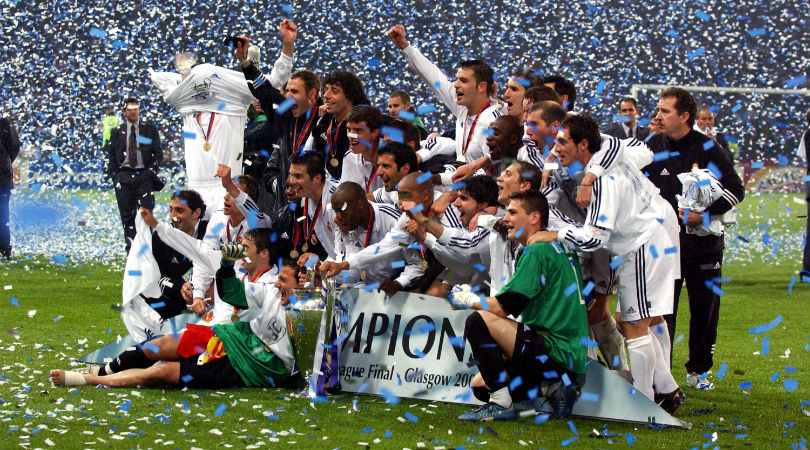
10. Real Madrid (2002)
This was Real Madrid at the height of their Galacticos era. Zinedine Zidane arrived from Juventus, joining Luis Figo, Raul and Roberto Carlos at the Bernabeu. The results were instant; the team scored 27 goals in 12 matches across the two group stages and swept aside Bayern Munich and Barcelona in the knockout stages before Zidane’s iconic goal saw off Bayer Leverkusen in the final at Hampden Park in Glasgow. Sadly for the Spaniards, President Florentino Perez didn't understand how crucial Claude Makelele was to the team, and the project fell apart a year later when the Frenchman was sold to Chelsea and not replaced.
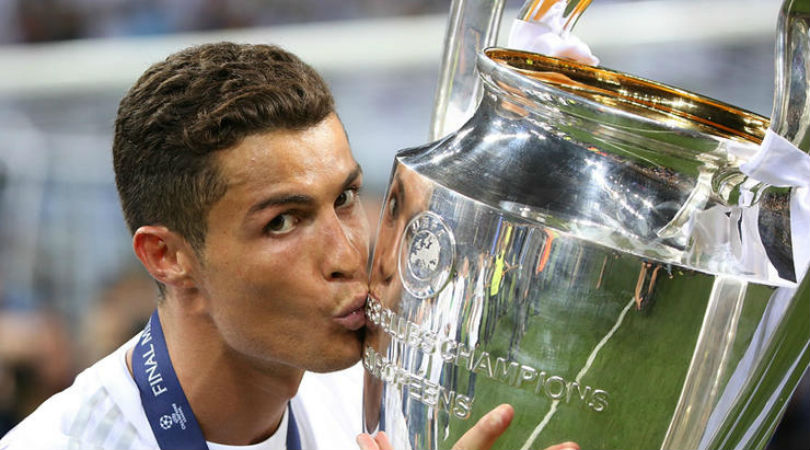
9. Real Madrid (2014)
This one meant more than most to Madrid, ending an obsession with la Decima – the tenth title – which had dragged on for more than a decade since 2002. Cristiano Ronaldo's competition-record 17 goals proved crucial, but it was very much a team effort.
Carlo Ancelotti's team achieved some outstanding results and none more so than the 4-0 demolition of holders Bayern Munich at Allianz Arena in the second leg of the semi-finals, with Sergio Ramos scoring a twice to settle the tie. Before that, the other 2013 finalists – Borussia Dortmund – were demolished 3-0 at Santiago Bernabeu in the quarter-finals. Ronaldo was relatively quiet in the final against Atletico Madrid, who came so close to winning, but Sergio Ramos scored the injury-time equaliser before three extra-time goals sealed la Decima in style.
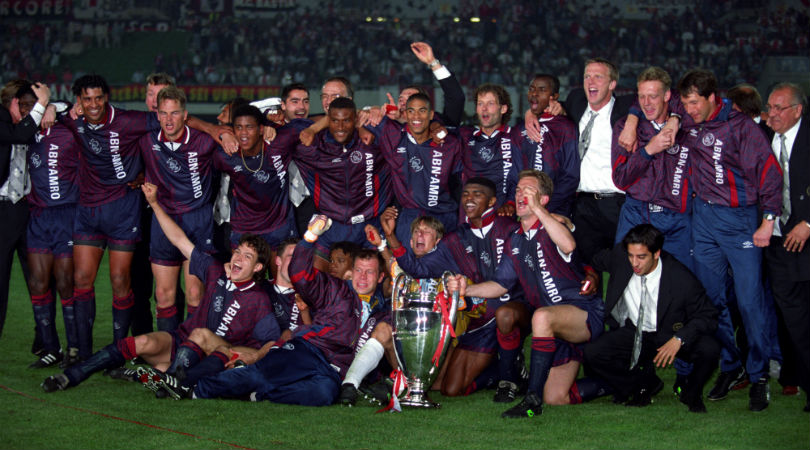
8. Ajax (1995)
The 1995 Ajax side were among the most popular winners ever. Coached by Louis van Gaal, they scored more than 100 goals in the Eredivisie, going the entire season unbeaten, and overcame the best team around – Fabio Capello’s Milan – three times in the 1994/95 campaign, twice in the Champions League group stage and again in the final, with 18-year-old Patrick Kluivert’s late goal sealing the title for the Amsterdammers.
The young team assembled by Van Gaal was a joy to watch. With the veteran Frank Rijkaard guiding them from defensive midfield, the likes of Clarence Seedorf, Edgar Davids, Jari Litmanen, Finidi George and Marc Overmars flourished.
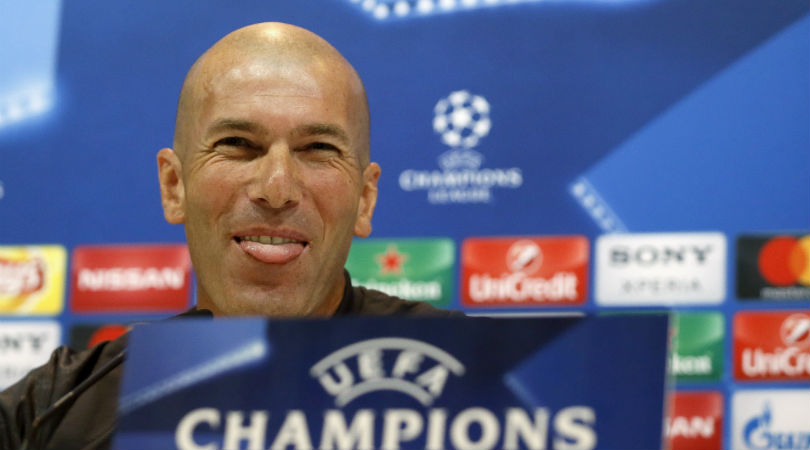
7. Real Madrid (2017)
Madrid were imperious throughout the 2016/17 Champions League, seeing off Napoli, Bayern Munich and neighbours Atletico in the knockout stages. Their opponents in the final were a strong Juventus side for whom the Champions League had become an obsession following three domestic Doubles in a row, but Madrid dominated as they had all season and ran out 4-1 winners in Cardiff.
This was an imposing team, marshalled by Sergio Ramos at the back, while Toni Kroos and Luka Modric controlled midfield and Cristiano Ronaldo’s 12 goals fired Madrid to their 12th title. Such was the depth of the quality of the side, they were able to call upon the likes of Marco Asensio, Gareth Bale and Alvaro Morata from the bench. It was a champagne season for Los Blancos, winning a league and European Cup double for the first time since 1958.
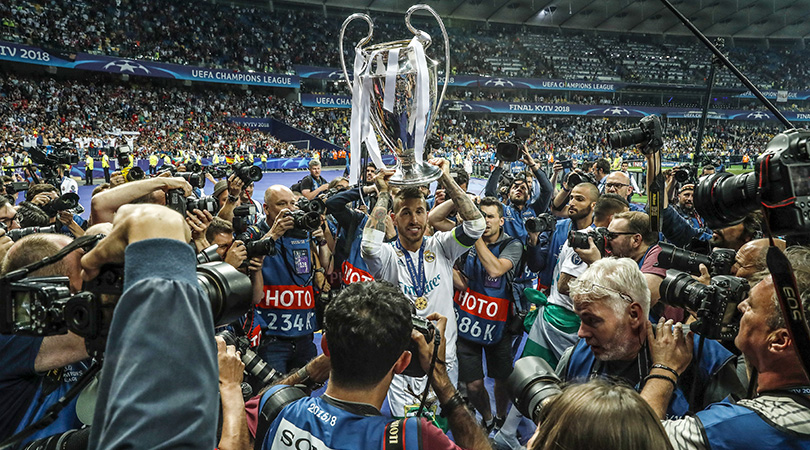
6. Real Madrid (2018)
It's difficult to look beyond the fact that Real Madrid of 2018 were very similar to the Real Madrid of 2017. They didn't do as well in La Liga, sure, but they did remarkably well to reach the final here: PSG, Juventus and Bayern Munich were all beaten.
They netted two of the finest goals in the competition's history: Cristiano Ronaldo's wondergoal against future club Juve, and Gareth Bale's winner against Liverpool in the Kiev showpiece will be remembered for decades to come. It was only logical that Zinedine Zidane decided to step aside after that.
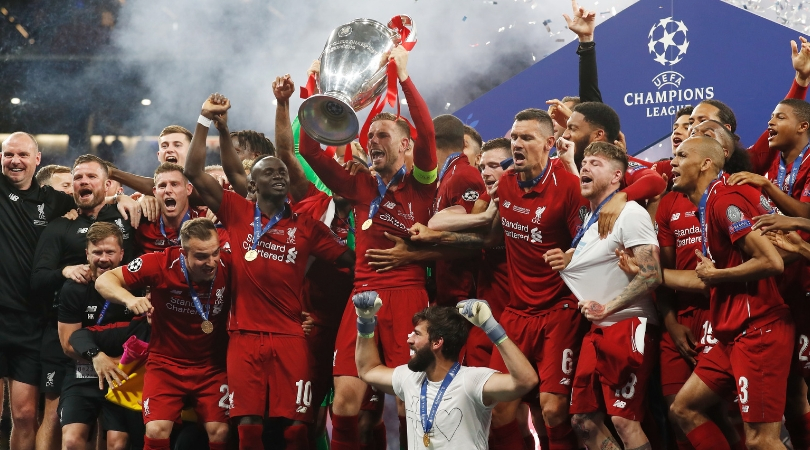
5. Liverpool (2019)
There was no need for the underdog heroics of Istanbul here. By the time Jordan Henderson lifted the Champions League trophy above his head at the end of last season, there was little doubt that Liverpool were the best team in Europe after playing some stunning attacking football en route to their sixth European title.
It could’ve gone so differently after a difficult group stage campaign saw them needing a win over Napoli on the final day to progress, having lost three of their opening five games including a shock defeat away to Red Star Belgrade. But Mohamed Salah’s goal gave them the victory they needed against the Italians before the Reds conquered Bayern Munich, Porto, Barcelona and finally Tottenham in the knockout stages.
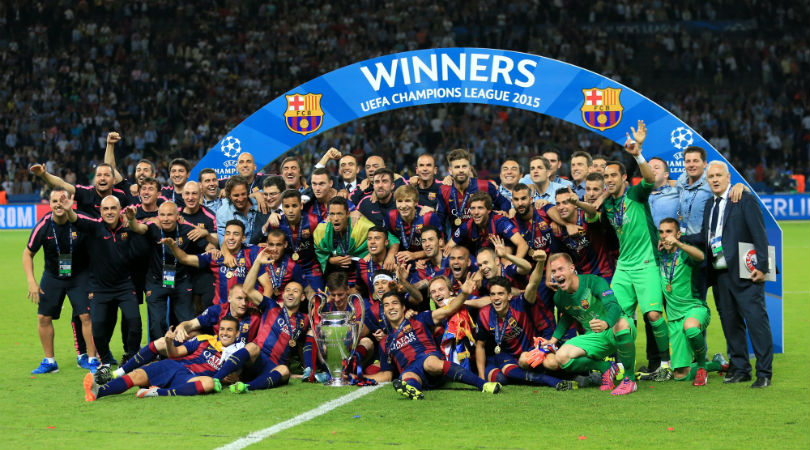
4. Barcelona (2015)
The 2014/15 season was the season the world was introduced to MSN, with the forward trio of Lionel Messi, Luis Suarez and Neymar delivering the treble for Barcelona in a phenomenal display of attacking football.
One of the best teams in history, Barcelona easily knocked out the champions of England (Manchester City), France (PSG) and Germany (Bayern Munich) – then Italy (Juventus) in the final. MSN scored 27 in the Champions League with the tormenter-in-chief Lionel Messi providing the gift-to-GIFmakers moment of the season, leaving World Cup winner Jerome Boateng on his posterior in the 3-0 win over Bayern.
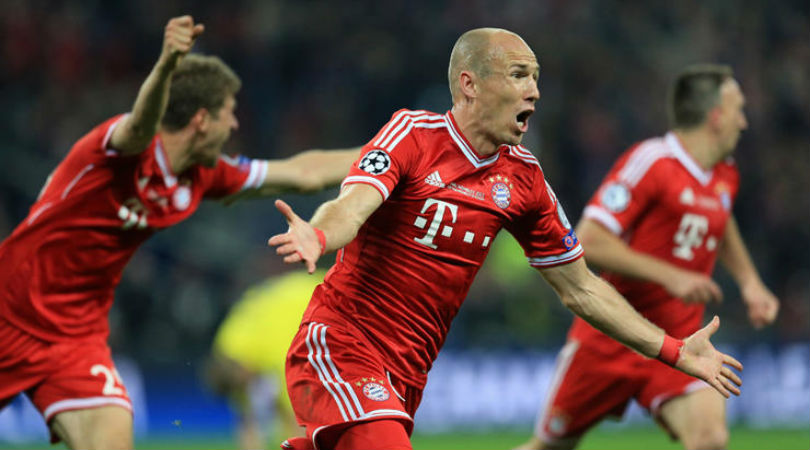
3. Bayern Munich (2013)
Poor old Jupp Heynckes delivered Real Madrid’s first Champions League title in 32 years back in 1998 and was sacked eight days later, but things eventually turned out alright for the German coach – his Bayern side won the Treble in 2013, giving Heynckes the perfect gift before his (short-lived) retirement.
His Bayern side was one of balance, quality and a seldom-matched ruthlessness. They beat Juventus 2-0 home and away in the quarter-final before utterly obliterating Barcelona 7-0 on aggregate in the semi-finals of the competition. Even Arjen Robben broke his habit of wasting chances when it mattered most to score a dramatic winner two minutes from full-time in the final against Borussia Dortmund at Wembley. A team to remember and cherish.
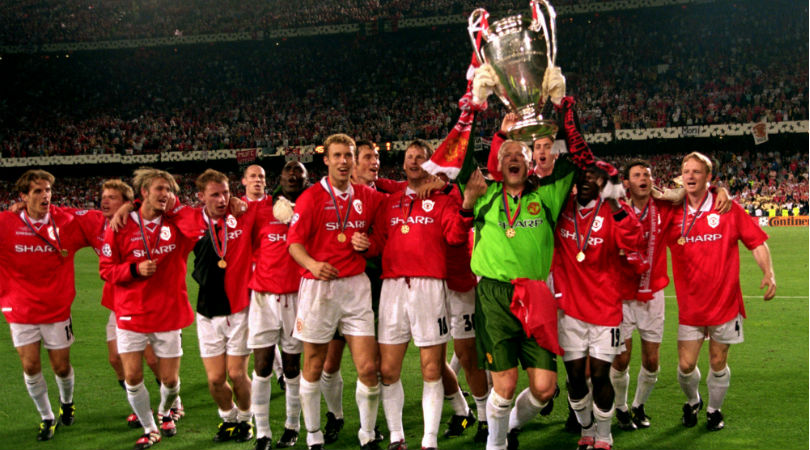
2. Manchester United (1999)
Sir Alex Ferguson guided his ’99 United side to an unprecedented Treble of Premier League, FA Cup and Champions League, with the latter being won in the most incredible fashion. As sensational as the late victory against Bayern at the Nou Camp was, arguably the comeback against a strong Juventus side in the semi-final of the competition was even more impressive. Having drawn the first leg 1-1 at Old Trafford, United trailed 2-0 in Turin but goals from Roy Keane, Dwight Yorke and Andrew Cole turned the tie on its head and saw Fergie’s side into the final. Even with key players Keane and Paul Scholes suspended and with Bayern having much the better of things, United won it courtesy of two late goals from Teddy Sheringham and Ole Gunnar Solskjaer from two David Beckham corners.
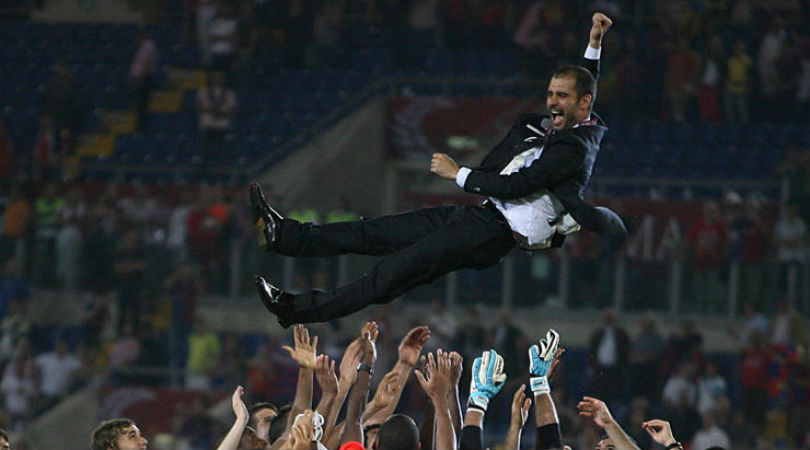
1. Barcelona (2009)
Pep Guardiola’s 2009 Barcelona are quite comfortably the best Champions League winners in the competition’s history. Los Cules played with an attacking swagger that had never been seen before and in the 2008/09 season the team was at its purest – Guardiola found an incredible team balance without over-relying on any individual or, indeed, the need to tailor the side to allow any one player to shine. Xavi, Andres Iniesta and Sergio Busquets were close to perfection at times, and that team also included Yaya Toure in his prime, while Samuel Eto'o starred alongside Thierry Henry in his last season at Camp Nou. They might have been lucky with refereeing decisions in the semi-finals against Chelsea, but their 4-0 demolition of Bayern Munich in the quarter-finals was amazing, while the 2-0 win over Manchester United in the final at Stadio Olimpico was overwhelming.
